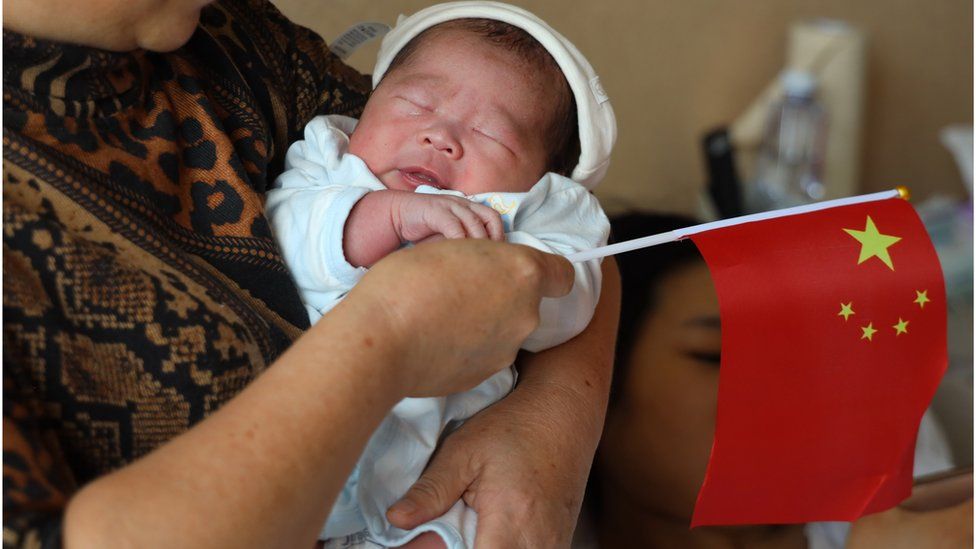
China’s fertility rate dropped to an estimated record low of 1.09 in 2022, the lowest of any country with a population over 100 million, according to government data.
Demographers from the China Population and Development Research Centre, a Chinese government research institution, released data indicating that last year’s fertility rate fell to 1.09 from 1.15 in 2021, below Japan’s rate for the same time period and only slightly higher than South Korea’s, which was estimated to be 0.8.
Separately, the Family Planning Association of Hong Kong claimed that the proportion of childless couples in the Chinese colony had grown to “alarming” proportions. According to a survey released on Tuesday, the percentage of couples without children increased from 20.6% to 43.2% between 2017 and 2022.
However, according to preliminary government data released this week, Hong Kong’s population increased by 2.1% in the year to June, marking the first significant growth since a decline that started in 2020 as a result of widespread emigration brought on by the strict Covid-19 control measures and the crackdown on the pro-democracy movement.
The government has forecast that Hong Kong’s population will continue to increase but that growth will come from immigration rather than new births, with the fertility rate expected to remain low.
China’s population decreased by 850,000 last year, reaching 1.41 billion for the first time in 60 years. Before the century is out, it is anticipated to reach a low of less than 1 billion. With an estimated 1.43 billion people, India surpassed China as the world’s most populous nation in April of this year.
For policymakers, China’s aging and declining population is a major worry. The population of working age decreased by more than 40 million people between 2019 and 2022.
Several delegates made suggestions for increasing the low birthrate at this year’s annual parliamentary meetings in March, including tax benefits, allowing children born to unmarried parents to be officially registered, and eliminating the three-child limit.

Also read: Turkish garbage collectors build fascinating library with discarded books
China ended its one-child policy, which had been in force since 1979, in 2016. Couples are now permitted to have up to three kids. Some provinces have loosened restrictions even more.
Sichuan, a province with more than 80 million residents, lifted the limit on the number of children per parent and all other limitations on birth registration in January. Some provinces provide newlyweds with up to 30 days of marital leave.
However, none of these actions have been able to increase the birthrate. Young people, especially women, are delaying getting married and having children because they believe it would be too expensive.
In June, youth unemployment reached a record high of 21.3%, and on Tuesday, China’s National Bureau of Statistics announced it would no longer release data by age group, sparking internet satire.
According to experts, financial and administrative incentives won’t make much of a difference when the overall economic outlook is bleak and mothers are still subjected to prejudice at work.
Researchers at Zhejiang Sci-Tech University recently conducted a study of 2,459 undergraduates, finding that 30% “have a negative attitude towards marriage. “According to the report, many students no longer view marriage as a given or the only route to parenthood. According to a Jiemian News report, students also believe that “it is difficult to reconcile the contradiction between childbirth and a career.”
Discussion on the subject appeared to be rather constrained on Weibo. Why is the birthrate declining? was the question posed by one influencer account with more than 4.3 million followers. ‘Hope’ is what’s lacking, and that something is. The majority of people spend half of their lives on a pile of reinforced concrete, and their lives are worse than dogs when it is difficult to become wealthy via hard work and knowledge rarely has the power to alter one’s destiny. They don’t want to cause suffering for the younger generation.











































































































































































































































































































































































































































































































































































































































































































































































































